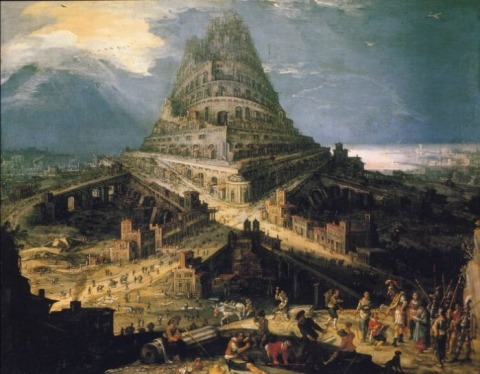
As in the days of Babylon on the plain of Shinar, men have begun to murmur among themselves, “Come, let us build ourselves a city, and a tower with its top in the heavens, and let us make a name for ourselves.”
One version of the dream envisions adjusting people to their particular lots in life in order to “enhance” their performance and satisfaction. We could have soldiers who don’t need to sleep, file clerks who never get bored, laborers who never go on strike, miners who prefer the heat and dark, abortionists who don’t have bad dreams.
In another, more egalitarian version, everyone is re-engineered the same way (except perhaps the engineers), so that life is more to our liking. Everyone could live forever, even if this meant putting an end to children, a point Europe has almost reached anyway. No one need ever become depressed, even if he had something he ought to be depressed about. No one need ever suffer pangs of conscience, no matter what he had done. No one need ever go mad from not knowing the meaning of his life, for our minds could be readjusted so we thought we knew already, or just didn’t need to know.
I don’t think the Church is ready to answer the prophets of Shinar, whom I imagine arguing something like this:
“You say freedom lies not in denying but in following our nature -- in humanizing ourselves, becoming more what God had in mind, fulfilling our inbuilt potentialities, our “immanent intelligibility.” Very well, we concede -- so it does! But what you call a human being is just a sophisticated mechanism; what you call its nature is its operating system; what you call its subjectivity or consciousness is its executive function; what you call its immanent intelligibility is the objectives built into its program; and what you call desires are their internal representations. Fulfilling our immanent intelligibility can therefore mean nothing more than becoming more successful in attaining what our programming leads us most strongly and persistently to desire.
“What then is this longest, strongest desire? Preeminently, the increase of our power, or the power of our descendants, with whom we are programmed to identify. If so, then to act on this desire simply is to act freely, simply is to follow nature, simply is to humanize ourselves. Suppose the greatest step we could take to increase the power of our descendants were to make them something different than we are -- to free them from human limitations.
“You might say that by taking such a step, we would not humanize ourselves but only abolish humanity. Say rather that in this case, the highest expression of our freedom is also its terminal expression -- that abolishing humanity is the most humanizing act we can perform. What parent would not sacrifice himself for his children?
“You say that even if we expressed our own freedom by reinventing humanity, we would destroy the freedom of our descendants -- we would be turning them into artifacts, treating them as things. Perhaps you imagine them complaining that they didn’t ask to be transhuman! But I notice that you don’t level the same accusation against the Creator, for after all, we didn’t ask to be human. Well, our descendants haven’t asked to be human either. Why should we force them to be?
“You say that created nature isn’t a limitation on our freedom, but the divine gift that makes freedom possible. So be it! Then we will be as gods to them -- dying gods, burdened with our sins -- and their reinvented nature will be the gift from us that makes their freedom possible. There are no two ways about it. If our freedom is following our nature, then their freedom is following theirs. To go with their new nature, they will simply have a new freedom. And wouldn’t it be a lot more fun?”
Dialogue with transhumanists -- and make no mistake, there will have to be dialogue with transhumanists -- will require considerably more philosophical equipment than we presently possess, and will require it at several different levels.
At the level of discursive reason, the metaphysics lesson must be prolonged. The differences between substances and mechanisms, between natures and programs, between the immanent intelligibility of our nature and what we strongly want, these things and others must be made more clear, clear to people who are not philosophers, or the dialogue will go nowhere. The whole ontology of modernity must be called into question, a stupendously formidable task.
At the level of simple insight, the power of the mind by which it sees what it understands, the matters we are discoursing about must be brought closer to the eye, made accessible to intuition. One thing that needs to be seen before it can be understood is the sheer horror of the transhumanist ambition. The danger is not that proponents of this ideology could achieve what they desire, but that they might ruin humanity by trying.
An even more important thing to be seen, or at least to be glimpsed, is divine transcendence. If we think that just because secular people are afraid of God, they must not long to see Him, we are mistaken. Under every disguise – and transhumanism is such a disguise -- that desire remains real and powerful, and must be offered the hope of satisfaction.